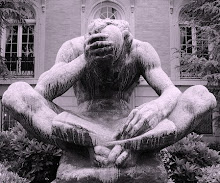I was over at Bede's Journal yesterday reading a post about the discovery of manuscripts at Herculaneum. He is amused that classicists have found mostly sub-par works in the library known as the Villa of the Papyri. I would think that finding sub-par works in a private villa in what was essentially a resort town would be unsurprising. How many people in Jackson Hole or West Palm Beach have extensive libraries consisting of Shakespeare, Chaucer, or Milton? Hell, how many would include Dorris Lessing, T.S. Eliot, or Salman Rushdie? Not very many. You'd more likely find Seven Habits of Highly Effective People, Stephen King books, and Microsoft Office manuals. Which are not a lot different than the bad poetry and painfully dry rhetorical treatises we've found in Herculaneum.
But that is a minor nitpick. What I find more disquieting is his later notion that "People imagine the ancient world's literature must have been amazing and the fact we have lost so much a complete tragedy. Well, it is a pity. But the fact is that the stuff that was preserved are [sic], in the main, the best bits. Their survival is precisely because they were valued more highly and more likely to be copied."
This argument is troubling for a few reasons--and I've heard this argument before. First, it's based on two logical fallacies. The more obvious one is the argumentum ad ignorantium. Lack of evidence is not evidence, and I would expect anyone who has submitted his PhD in philosophy to recognize this fallacy! There's absolutely no way to know what we've lost: who knows what burned in Alexandria? But we do have references to other, lost works; off the top of my head, I'm thinking of Aristotle's lost works on comedy and his lost dialogues, but there are lots and lots we've lost. So how do we know that we have the "best bits?"
We were a few degrees (literally) from losing the Nowell Codex, the only extant MS of Beowulf. If we didn't have it, we would have lost a significant source of information about Anglo-Saxon culture and literary practices. Maybe in the grand scope of things, Beowulf isn't one of the "best bits"; maybe we only think it's the greatest Old English poem because it's the greatest Old English poem we have. There's no way to know. The point is, we can't know what we've lost, and laughing up our sleeves at others who are hopeful to find new texts because we think we have everything that's really important is a great way to make sure we don't find anything good and to look like fools when we do.
The second fallacy inherent in his argument is the post hoc (ergo propter hoc) fallacy. Just because the MSS we have were the ones preserved, it does not follow that they were the most important ones (see the above-linked story of the Ashburnam House fire and the Nowell Codex). But maybe there were foundational texts that were about as popular then as Nietzsche's (4,416 on Amazon) or Chaucer's (6,833 on Amazon) are today: foundational, yes, but popular, not so much--at least not as popular as Stephen Colbert's I Am America (And So Can You).
On the other hand, maybe the texts that survived were the most useful ones. Dr. Spock's book on childcare and The Guinness Book of World Records are among the top ten most popular (by copies) English-language books of all time--along with the Bible. Should we say that they have the same sort of value (whatever that is) as the Bible? Maybe a cultural theorist would, reading The Common Sense Book of Baby and Childcare as a cultural index of anxiety about child-rearing and The Guinness Book of World Records as a crystallization of our interest in the novel. But there wouldn't be much there for a New Critic!
Which brings me to my last point. This argument rests on the assumption that there is something inherent to a text that makes it valuable and that the intrinsic value of the texts could be recognized by anyone capable of reading it (sometimes called an "ideal" or "informed reader"). Therefore, only the "best bits" are copied and are preserved for us to read. I've already questioned the logical soundness of the idea, but lots and lots of theorists also dispute the universal, intrinsic value of any specific text. If we had numerous Old English epic (or romance, or lyrical depending on whom you ask) poems like Beowulf, then maybe it wouldn't be as important or as "great" as people seem to think it is. (Personally, I love it, but again that is a personal preference and there is nothing theoretically I can point to to say it's inherently better than "Judith" or "Christ III.") No one can judge literature in a cultural, historical, or personal vacuum--and even if we could, we'd never agree on the criteria set by which we would judge them.
27 October 2007
Subscribe to:
Post Comments (Atom)

No comments:
Post a Comment